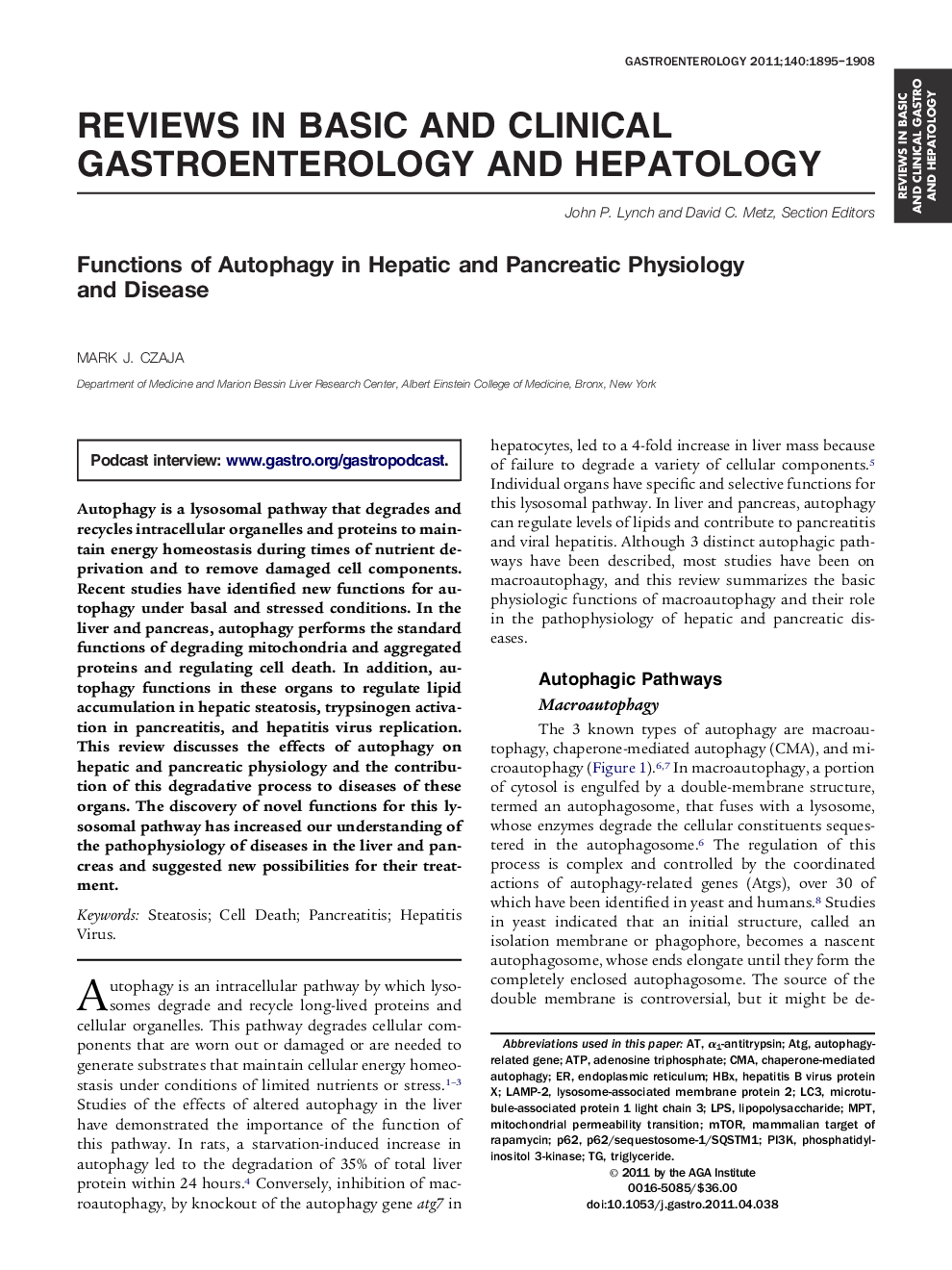| Article ID | Journal | Published Year | Pages | File Type |
|---|---|---|---|---|
| 3293012 | Gastroenterology | 2011 | 14 Pages |
Abstract
Autophagy is a lysosomal pathway that degrades and recycles intracellular organelles and proteins to maintain energy homeostasis during times of nutrient deprivation and to remove damaged cell components. Recent studies have identified new functions for autophagy under basal and stressed conditions. In the liver and pancreas, autophagy performs the standard functions of degrading mitochondria and aggregated proteins and regulating cell death. In addition, autophagy functions in these organs to regulate lipid accumulation in hepatic steatosis, trypsinogen activation in pancreatitis, and hepatitis virus replication. This review discusses the effects of autophagy on hepatic and pancreatic physiology and the contribution of this degradative process to diseases of these organs. The discovery of novel functions for this lysosomal pathway has increased our understanding of the pathophysiology of diseases in the liver and pancreas and suggested new possibilities for their treatment.
Keywords
α1-antitrypsinLPSHBxp62LC3CMAATGmTORPI3KMPTChaperone-mediated autophagyAdenosine TriphosphateATPmitochondrial permeability transitiontriglycerideSteatosisendoplasmic reticulumPhosphatidylinositol 3-kinaseLAMP-2lipopolysaccharideCell deathmammalian target of rapamycinHepatitis virusPancreatitislysosome-associated membrane protein 2microtubule-associated protein 1 light chain 3autophagy-related gene
Related Topics
Health Sciences
Medicine and Dentistry
Gastroenterology
Authors
Mark J. Czaja,
